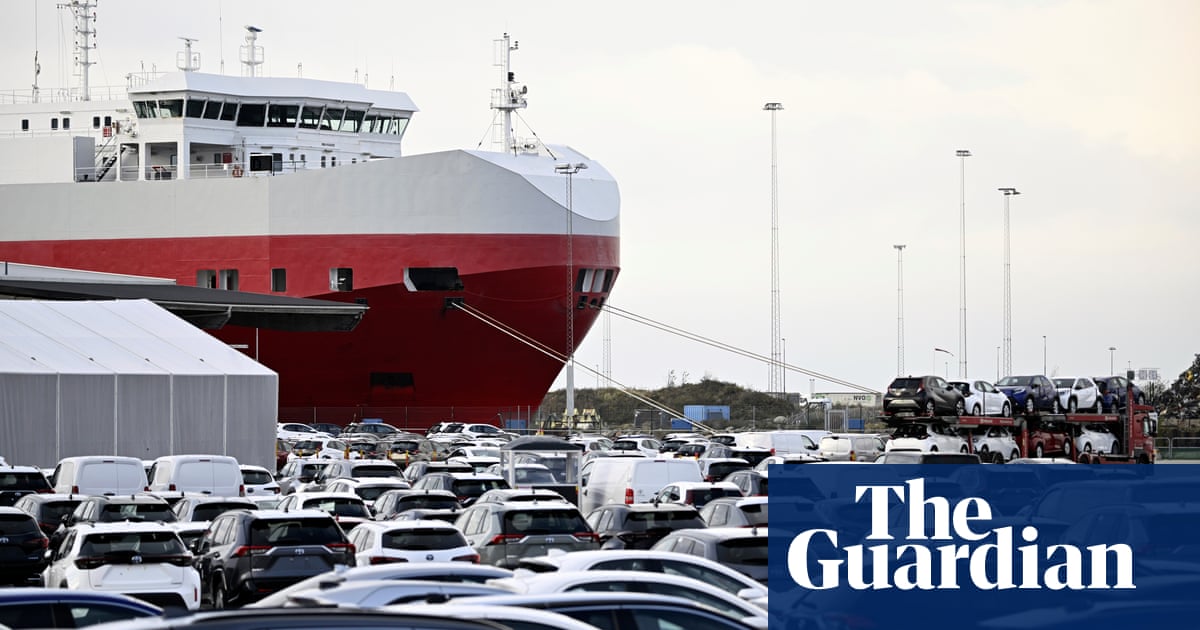
IKEM: "IF Metalls stridsåtgärder mot Hydro Extrusion är orimliga!" - nordiskaprojekt
IF Metall har i sin konflikt med Tesla riktat varsel mot IKEM:s medlemsföretag Hydro Extrusion i Vetlanda. Från och...
 www.nordiskaprojekt.se
www.nordiskaprojekt.se
Translated to English:
IKEM: "IF Metall's industrial action against Hydro Extrusion is unreasonable!"
By the Stordåhd Editorial Office |Friday 24 November 2023 at 11:57In its conflict with Tesla , IF Metall has issued a notice against IKEM 's member company Hydro Extrusion in Vetlanda. As of today, November 24 at 1 p.m., the strike will be implemented and Hydro Extrusion will no longer be allowed to manufacture a crucial component for Tesla cars. IKEM believes that the industrial action is unreasonable.
That a trade union takes industrial action to get companies to sign a collective agreement is part of the Swedish model. But IKEM believes that it is an unreasonable industrial action to target a company that partly has nothing to do with the conflict, and partly has a collective agreement themselves. Hydro Extrusion can neither influence nor resolve the conflict between IF Metall and Tesla.
- The duty of peace, i.e. the protection against conflict measures, is the most important function of collective agreements. The fact that IF Metall is now subjecting our collective bargaining member to a strike means that the company is suffering financial damage and endangering important business relationships. The situation is very unfortunate and we are following developments closely, says Jonas Hagelqvist, CEO, IKEM.
- After all, Hydro Extrusion has nothing to do with the conflict, and they can't influence it either. The situation also raises questions about which party should actually take the financial risk when such a conflict arises, continues Jonas Hagelqvist.
In a recent economic barometer for quarter 3, IKEM's member companies had to rate Swedish competitive conditions in comparison with the rest of the world. According to the survey, "a functioning labor market" is considered to be one of the most important conditions. IKEM warns that the conflict risks affecting Sweden's reputation internationally and, in the long run, impairing the industry's competitiveness. Many other countries have more balanced conflict rules. Sweden needs that too.
- Sweden needs to limit the possibility of sympathy measures and introduce a rule of proportionality. IF Metall's industrial action risks seriously damaging Swedish competitiveness and reducing companies' incentives to establish themselves and invest in Sweden, concludes Jonas Hagelqvist.
Published February 23, 2015
Procurement, Commission research, 2015:2
Collective agreements and collective agreement conditions in public procurement
Andrea Sundstrand has, within the framework of the Swedish Competition Authority's commissioned research, investigated the extent to which it is possible for procuring authorities to impose requirements on collective agreements or on other labor law conditions, with the aim of protecting employees from unreasonable wages and unsafe employment and working conditions.The conclusions in the report indicate that it is currently not possible to require companies to have collective agreements in connection with public procurement. On the other hand, it is possible to make demands that the companies meet certain conditions in the collective agreements.





